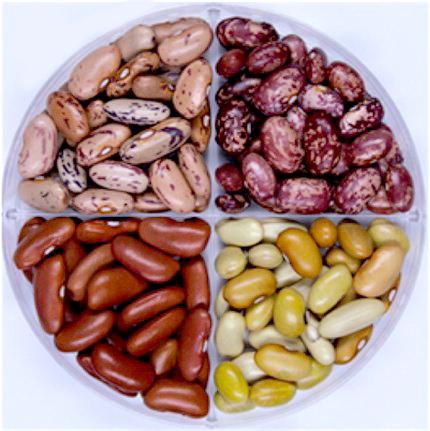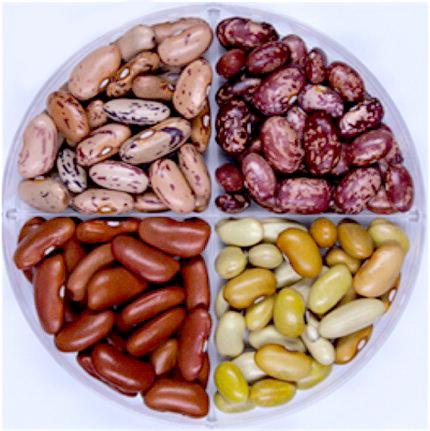
Credit: American Chemical Society
Beans are a versatile, inexpensive staple that can boost essential nutrients in a diet, especially for people in low-resource areas where food options are limited. To get the most out of these legumes, new research suggests choosing fast-cooking dry beans could be the way to go. A study in ACS' Journal of Agricultural and Food Chemistry found that fast-cooking beans retained more protein, iron and other minerals than "slower" dry beans.
According to the World Health Organization about 2 billion people around the world are estimated to be deficient in key vitamins and minerals, including iron and zinc. Dry beans could help address these deficiencies, but they often take a long time to cook. This can deter people from adding them to meals. To prepare food, many people with limited resources rely on burning wood, charcoal or other biofuels that can require a lot of time to gather or a relatively high percentage of their income. For those reasons, faster-cooking beans would be a good dietary option, but whether they carry the same nutritional value as slower-cooking varieties was unknown. So Karen A. Cichy, from the U.S. Department of Agriculture, and colleagues set out to test them.
The researchers analyzed the nutritional value of 12 fast-, moderate- and slow-cooking dry bean cultivars from four classes: yellow, cranberry, light red kidney and red mottled. The speedier beans maintained higher protein and mineral content after they were prepared than the moderate- and slow-cooking varieties. For example, the fast-cooking yellow bean Cebo Cela contained 20 percent more protein, 10 percent more iron and 10 percent more zinc than the yellow bean Canario, which took twice as long to prepare. Further testing showed that the iron bioavailability — the amount that a person's body would absorb — is also higher in the quicker-cooking beans in each of the four classes examined.
###
The authors acknowledge funding from the U.S. Agency for International Development, the U.S. Department of Agriculture and the National Cancer Institute.
The abstract that accompanies this study is available here.
The American Chemical Society is a nonprofit organization chartered by the U.S. Congress. With nearly 157,000 members, ACS is the world's largest scientific society and a global leader in providing access to chemistry-related research through its multiple databases, peer-reviewed journals and scientific conferences. Its main offices are in Washington, D.C., and Columbus, Ohio.
To automatically receive news releases from the American Chemical Society, contact [email protected].
Follow us: Twitter Facebook
Media Contact
Michael Bernstein
[email protected]
202-872-6042
@ACSpressroom
http://www.acs.org
############
Story Source: Materials provided by Scienmag




